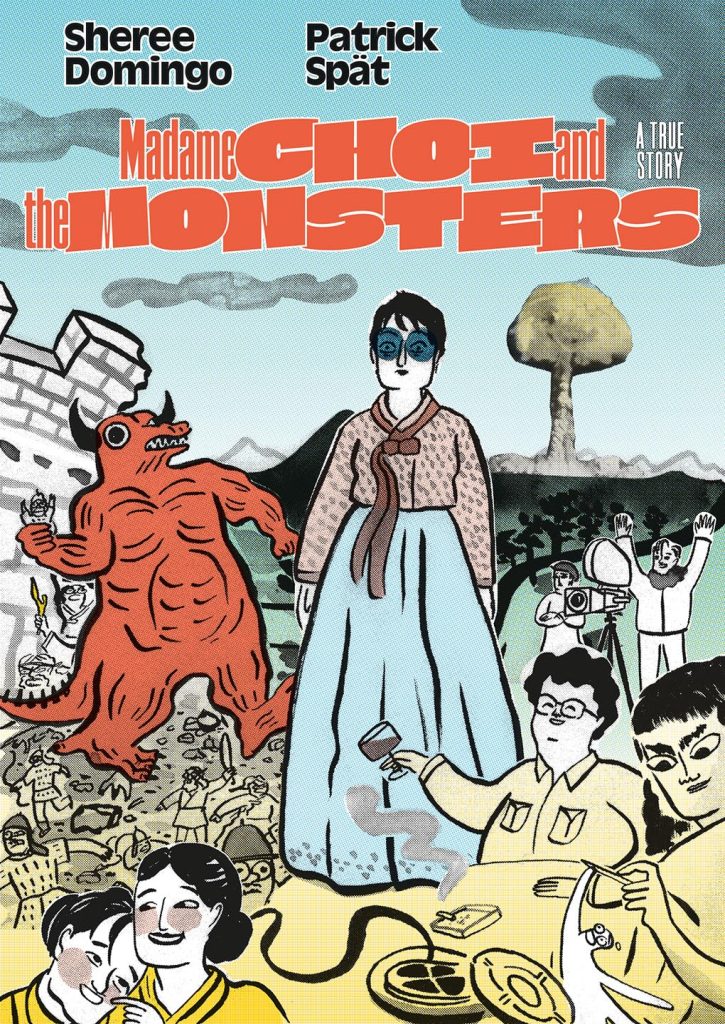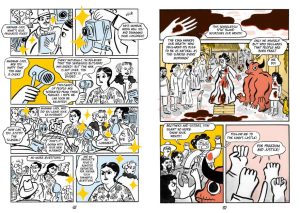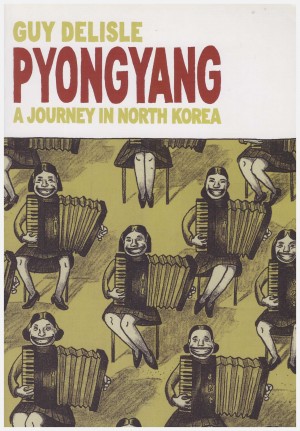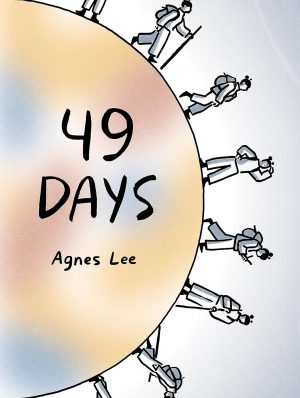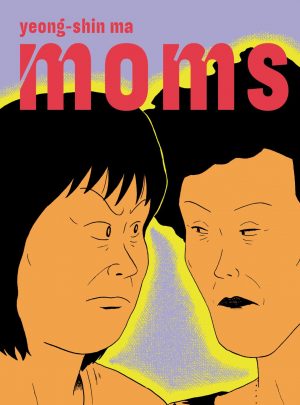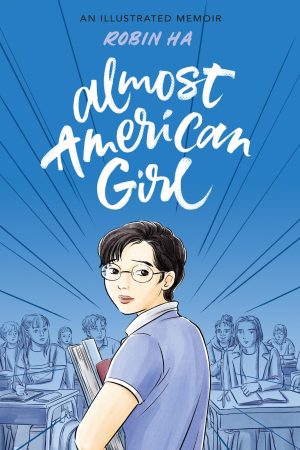Review by Karl Verhoven
The cover claims Madame Choi and the Monsters is a true story, which takes some swallowing to begin with as it opens with strange supernatural creatures in the company of a young girl. Yet the truth is in there.
By the early 1970s Choi Eun-hee was one of South Korea’s most recognisable people due to a prolific film career dating back to the 1950s. Her husband directs her films, yet they work within the restrictions of the state censors whose justification is “the government protects people from corruption and fornication”. Such activities are equated with the spread of student riots during the 1970s, twenty years after the Korean nation had been partitioned. However, the strangest part of her career is about to begin.
Neither writer Patrick Spät nor artist Sheree Domingo are conventional storytellers. Spät weaves in what may or may not be a Korean myth about a metal-eating monster and the woman it protects, and for most of the book it appears to have little connection to real life events. Domingo takes a psuedo-primitive approach to the illustrations, giving an immediacy to the art, while restricting the use of colour.
In 1978, separated from her husband, Choi is invited to make a film in Hong Kong, from where she’s abducted to North Korea on the personal instructions of dictator Kim Jong-il. He’s a big fan, don’t you know? This much is true, and Choi experiences the squalor and twisted ideology of North Korea first hand, and witnesses how cheap life is when appropriate devotion isn’t shown to the absolute ruler. It’s during this section that Spät’s at his strongest, transmitting the stages of Choi’s assimilation from rebellion to despair to compliance, all the while hoping to be reunited with her children. Spät’s version of the “merciful saviour of the people and wise prophet” is calculated, but not tinged with ridicule, which would undermine his story.
There is a reunification, but not the one Choi wants, and the myth of the monster eventually connects with Choi’s experiences. What for so long seemed to have been a trivial indulgence is actually indispensable, and proves a smart inclusion. On reflection, it’s the wiser of the two options presenting themselves for telling Choi’s story. It may be more fanciful, but a straightforward narration of events would lack the poetic quality Madame Choi and the Monsters possesses.
Overall this is an unconventional and experimental biography telling a fascinating story without always aiming at broad appeal.
